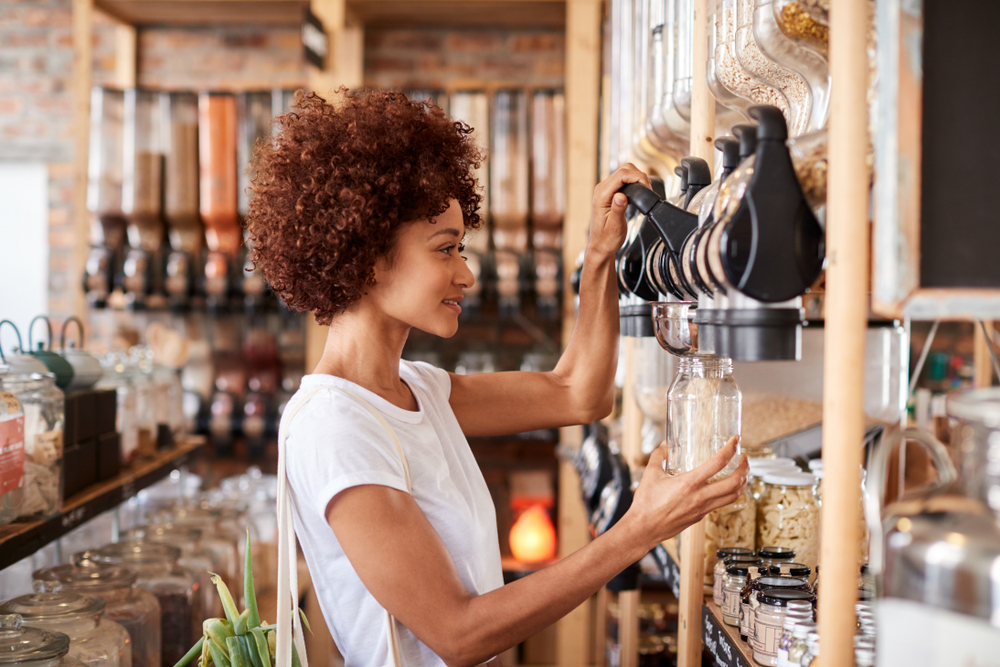
25 Sep Things I Saved Money on When I Became a Minimalist Consumer
Minimalism isn’t an entirely new revolutionary idea. In fact, it originally had very little to do with getting rid of the clutter or ‘visual noise’ that an excess of belongings made.
The term became popular in the 50s and 60s because design, art, music were all created with a similar streamlined/simplistic theme in mind. Superfluity was abandoned and replaced with creative artefacts that championed one or two key elements. What a lot of conscious consumers did was then transfer that idea into a lifestyle trend that has gained traction in the last decade.
Minimalist living, as we understand it today, is a stripping away of unnecessary possessions to only keep the bare necessities.
Planet Earth has a junk problem. While islands of plastic float in our oceans with the promise of outliving us all, and CO2 emissions from industrial factories widen the hole in our Ozone layer, critical water sources are being polluted with trash we simply can’t get rid of. As we scramble to reverse those damages to the eco-system, environmentally responsible individuals across the globe are looking at how they can reduce their personal waste.
Interestingly, minimalism has both natural and financial benefits, making an appealing alternative to what might be considered to be a ‘mainstream luxury’ lifestyle. Here are a few things I saved on when I became a minimalist consumer:
FOOD
I am in the business of food. If I’m not reviewing a restaurant for my blog or a magazine I’m writing for, I’m in the kitchen developing a new recipe. So it’s been incredibly important to me to practice minimalism – when it comes to food – because it benefits the planet, my body, and my pocket.
Food is one of the easiest places to make minimalist because the entire ethos of this movement is about prioritising your needs over your desires. Stick to the basics. If you can stock your pantry with locally and ethically sourced produce (plus the fruits and veggies you grow in the garden or grow boxes), you’ll find you can make everything else from scratch. For instance, I make my own salad dressing from natural brines and oils. I’ll grab a few herbs and spices from my potager and voila.
Because my mom is generous with the seasonal fare she grows on her farm, I manage to negotiate enough onions to make my own chutneys and relishes instead of having to buy them from the store. A communal lemon tree that grows in my brother’s apartment building helps me make my own lemonade so I rarely buy juice.
This is only the tip of the iceberg.
Though it might take a little time and extra money to set up the infrastructure of a herb garden or veggie patch, for example, opting for it instead of heading to the shopping mall ends up saving you far more money in the long run. Store your seeds and invest in a decent compost bin and you might never have to purchase a fruit or vegetable again.
COSMETICS
If I get started on the benefits of natural face masks, body scrubs, and hair treatment, I’ll be typing ‘til my fingers fall off.
Anita Van Dyke, who wrote the fantastic book Zero Waste Life in Thirty Days, stresses that if you cannot pronounce the ingredients on your anti-ageing creams and night serums, you probably shouldn’t be putting them on your skin. Why would you when strawberries have a healthy amount of natural collagen in them that, when crushed with a tablespoon of lemon juice, makes a better puffy/pigmented eye bags buster than anything on the shelves?
For the past four years, I’ve alternated between a turmeric mask and coffee and sugar scrub for my face and sourced beeswax as a serum substitute. This all for the fraction of the price it would’ve cost me to buy name brand cosmetics full of alcohol and parabens.
CLEANING PRODUCTS
Lemon soaked water sounded like a gimmick when I first came across it. Speaking as a mild germophobe, I really didn’t trust it, but it really works.
If you want to ensure the dishes you eat off, and the floors your little one crawls across aren’t rife with a thin film of toxic chemicals found in a lot of cleaning agents, while also laughing all the way to the bank, you’ll want to try this. Pop a few sliced citruses (lemon, orange, or grapefruit) into water and let it soak for up to 6 hours then take the fruit out or it will rot. You can store the citrus water for weeks in your fridge and use it when you need to. Natural floor polish is made using oil with the citrus.
Minimalist living, like veganism and adopting a zero-waste lifestyle, all boils down to preparation. Take time to set things up and it really is smooth sailing from there. You’ll so appreciate soaking in the tub when you’ve made your own bath salts using Epsom salt, lime rind, ginger powder, and rose leaves from the garden. You’ll rest easy knowing your little one isn’t picking up toxins from your dishwashing liquid. This lifestyle choice really offers you peace of mind.



No Comments